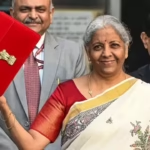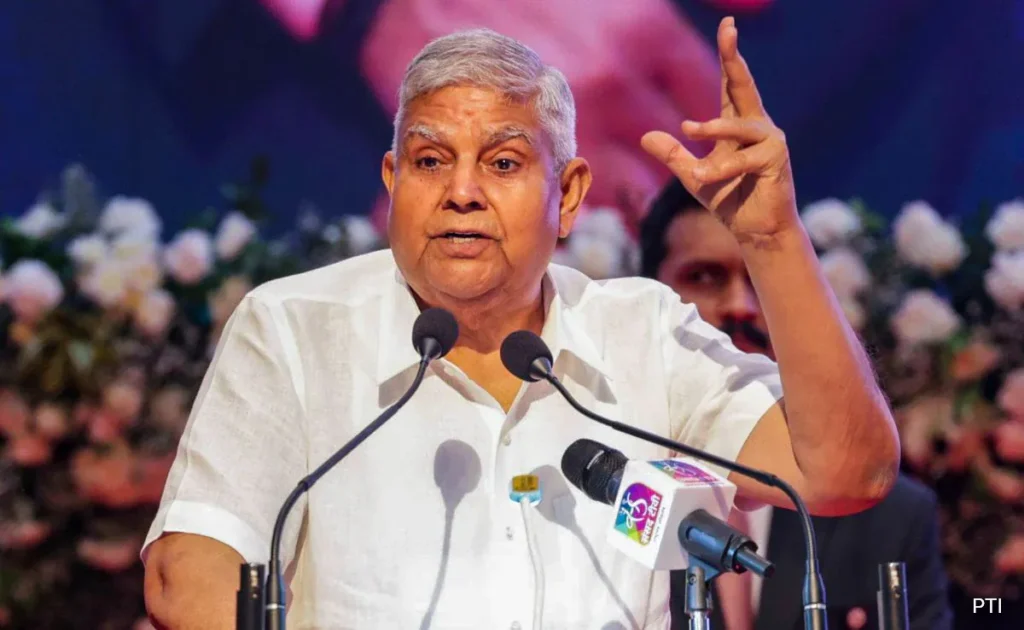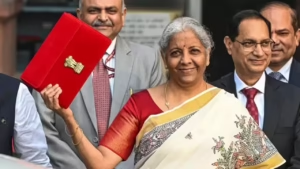Noida, June 23, 2025:
Vice President Jagdeep Dhankhar has commended the National Education Policy (NEP) 2020 as a monumental change that will reshape the framework of education in India. He made this remark while addressing the 99th Annual Meet and National Conference of Vice-Chancellors, which the Association of Indian Universities (AIU) hosted at Amity University, Noida. He also went to call it a product of India’s “civilizational spirit, sense, and ethos.”
Mr. Dhankhar noted the level of representation and participation involved in the process of creating the policy, noting that it was inclusive consultation and consideration from “hundreds of thousands of individuals” throughout the country. Based upon his experience as the Governor of West Bengal, he shared the necessary and active engagement he had with developing the NEP and characterized it as a significant, historic advancement after more than three decades.
Over three decades later, we are witnessing a paradigm shift in the educational structure of the country with National Education Policy 2020, which will not only reform, but transform the manner in which we learn, teach, and innovate, the Vice President said.
A Policy Embedded in Indian Values
Mr.Dhankhar commented that NEP is different because it resonates with India’s culture and way of knowing and learning, and hence, India’s education task will be evolving but securely tied to the culture of the country. He was confident that once the National Education Policy was fully implemented, the policy would transform higher education, promote multidisciplinary education, and enable students to thrive in an ever-changing world.
Paying respects to Dr. Syama Prasad Mookerjee
The Vice-President also took this opportunity to pay respects to Dr. Syama Prasad Mookerjee, who founded the Bharatiya Jana Sangh, on his ‘Balidan Diwas.’ He called it “a exceptional day in the history of the country” and described Dr. Mookerjee as one of the “finest sons of the soil” for India.
Recalling Dr. Mookerjee’s key position in integrating Jammu and Kashmir, Mr. Dhankhar referred to Dr. Mookerjee’s ‘slogan’ in 1952, which stated “Ek Vidhan, Ek Nishan, aur Ek Pradhan hoga desh mein, do nahin honge” to signify the idea of one nation, one constitution, and one leadership.
Kashmir was divided for far too long and Article 370 caused pain for both the nation along with the state of Jammu and Kashmir. Mr. Dhankhar affirmed Dr. Mookerjee’s vision is still alive today in terms of India’s unity and governance.
Looking Forward
At the end of his speech, the Vice President called on the nation’s academic leaders to engage with the NEP’s vision and fulfill their duty to enact the NEP. He stated that universities will need to shift into innovation ecosystems, where students grapple with creativity, critical thinking, and research to fulfill national aspirations.
“Our education system must produce change-makers, not just degree-holders—those who will carry forth the eternal wisdom of India while addressing contemporary concerns,” he stated.
With voices such as Mr. Dhankhar’s in support, the National Education Policy 2020 continues to represent a key component of the educational renaissance in India—an effort to harmonize knowledge, culture, and innovation in the country’s future educational framework.












More Stories
UIDAI Rolls Out Three Major Aadhaar Rule Changes From November 1, 2025
Karnataka Cannot Regulate Foreign Universities, Says Higher Education Minister
PM Modi Speaks at the South India Natural Farming Summit 2025 in Coimbatore